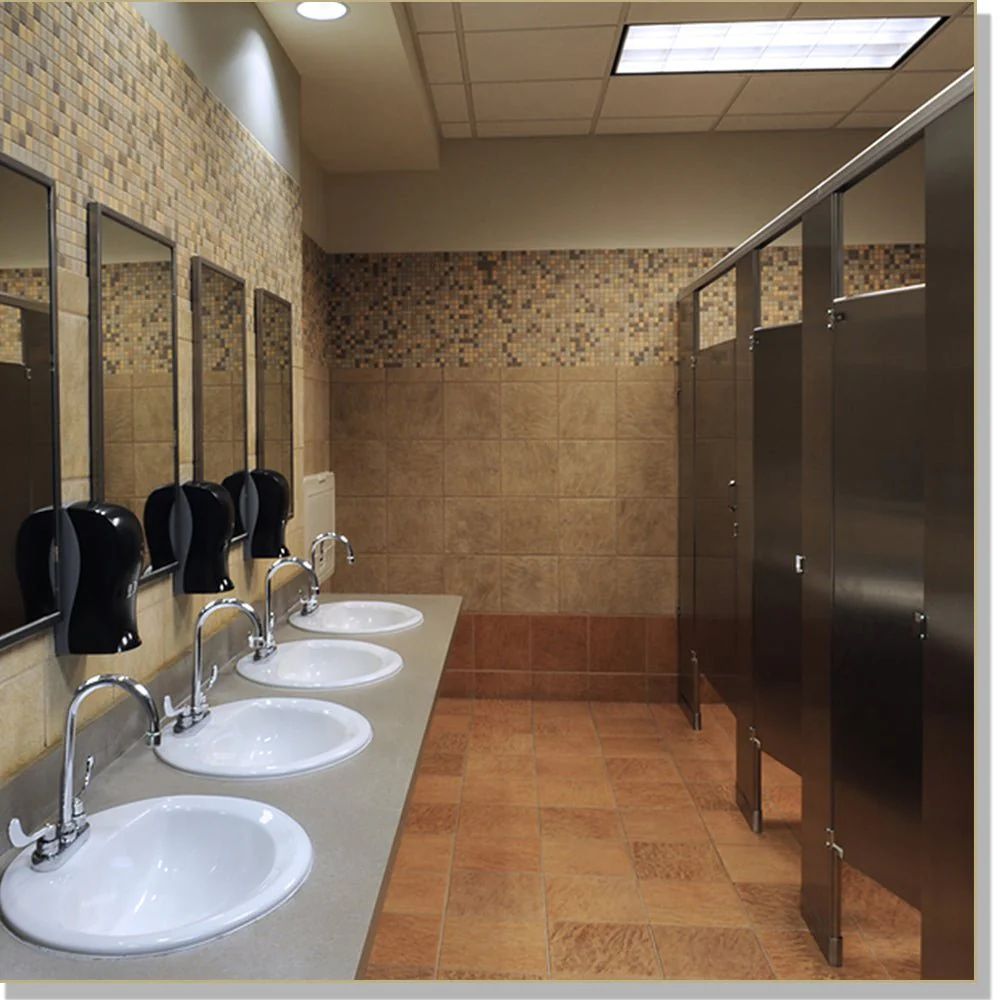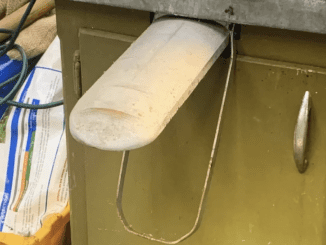Let’s face it—pooping at work is not exactly on anyone’s bucket list. The thought of using a shared restroom, the awkward sounds, and the lingering fear of being “that person” can make the idea downright unappealing. But while many of us try to hold it in until we’re in the comfort of our own home, this habit might be doing more harm than good.
According to Professor Peter Katelaris, a gastroenterologist from Sydney, delaying a bowel movement for convenience or comfort can have serious consequences for your health. Let’s dive into why you should rethink this common avoidance strategy.

A professor has warned against holding your poop in at work. Credit: Aire Images
The Science Behind the Urge: Why You Shouldn’t Ignore It
When nature calls, your body isn’t just being inconvenient—it’s doing its job. The urge to poop is your digestive system’s way of telling you that it’s time to eliminate waste and toxins. Ignoring this natural signal can lead to some uncomfortable outcomes.
Professor Katelaris explains that when you suppress the urge to have a bowel movement, your body might not feel “ready” later when you finally decide to go. This disruption can lead to constipation, bloating, and a general sense of discomfort.
Your digestive system isn’t like a Netflix queue; you can’t just pause it and expect things to pick up right where you left off. Suppressing the urge creates a cycle that can strain your body and lead to bigger problems.
The Consequences of Holding It In
Avoiding a public restroom or postponing a bathroom trip might seem harmless in the moment, but the long-term effects can be unpleasant, to say the least.
- Constipation: When you delay going, your colon continues to absorb water from the stool, making it harder and more difficult to pass.
- Bloating and Discomfort: The longer waste stays in your body, the more pressure it creates in your digestive system, leading to a bloated, heavy feeling.
- Hemorrhoids and Fissures: Straining to push out stool that’s become hard or compacted can lead to hemorrhoids or even fissures—tiny, painful tears in the skin around the anus.
- Heart Risks: Straining excessively while on the toilet can increase your blood pressure temporarily, which may pose a greater risk for heart attack or stroke, especially in older adults.
Ignoring your body’s signals is a gamble that might not pay off.
What Makes a Healthy Bowel Movement?
Before you hit the panic button, it’s important to understand what’s considered normal when it comes to bowel movements. According to Professor Katelaris, what’s normal for one person might not be the same for another.
Most adults typically have bowel movements anywhere from three times a day to three times a week. Consistency and ease of passage are more critical indicators of a healthy gut than frequency alone.

How Diet Impacts Your Digestive Health
Your diet plays a starring role in how well your digestive system functions. Professor Katelaris emphasizes the importance of consuming whole foods and limiting ultra-processed ones.
A healthy diet for optimal bowel movements includes:
- Fruits and Vegetables: These are rich in fiber, which helps add bulk to your stool and makes it easier to pass.
- Legumes: Lentils, beans, and chickpeas are excellent sources of both soluble and insoluble fiber.
- Whole Grains: Unprocessed grains like oats, brown rice, and quinoa promote regularity.
- Nuts and Seeds: These provide healthy fats and additional fiber.
Processed foods, on the other hand, often lack fiber and can slow down your digestive system. Additionally, sugary or salty snacks can throw off your gut health, making constipation more likely.

Hydration: The Unsung Hero of Digestive Health
Staying hydrated is just as important as eating a fiber-rich diet. Without enough water, your digestive system struggles to keep stool soft and easy to pass.
While there’s no one-size-fits-all rule for water intake, Professor Katelaris advises paying attention to your body’s signals. If your mouth feels dry or your urine is dark, it’s a clear sign you need more fluids. On the flip side, if your urine is pale or clear, you’re likely drinking enough.
It’s that simple: Drink water, and your gut will thank you.
Why You Shouldn’t Fear the Office Restroom
The fear of pooping at work is relatable, but it’s worth putting those worries aside for the sake of your health. Consider these practical tips to make the experience less daunting:
- Choose the Right Moment: If privacy is your concern, look for quieter times during the workday, like early morning or after lunch breaks.
- Bring Supplies: Keep a travel-sized air freshener or pack of wipes with you for added comfort.
- Practice Mindfulness: Try not to overthink it. Remember, everyone poops—it’s a universal truth!

What Happens When You Don’t Go?
Ignoring the urge to go can throw off your body’s natural rhythm, leading to discomfort and even long-term issues. Pushing your body to adapt to an unnatural schedule can make bowel movements less predictable and more difficult to manage.
Equally concerning is the strain you may place on your body when trying to “force” a bowel movement later. Hemorrhoids, fissures, and even temporary spikes in blood pressure are risks you don’t want to take.
Simple Lifestyle Changes for Healthy Bowels
Improving your digestive health doesn’t require a complete life overhaul. Small, consistent changes can make a big difference:
- Eat More Fiber: Gradually increase your fiber intake to avoid bloating or discomfort.
- Drink Plenty of Water: Aim for consistent hydration throughout the day.
- Establish a Routine: Train your body to recognize regular mealtimes and bathroom breaks.
- Stay Active: Regular physical activity helps stimulate your digestive system.
These habits support a healthier gut and reduce the risks associated with delaying bowel movements.
Conclusion: Listen to Your Body
Pooping at work might not be your favorite activity, but refusing to go when your body tells you to isn’t worth the health risks. From constipation and bloating to more severe complications like hemorrhoids, the consequences can be painful and inconvenient.
By paying attention to your body’s natural signals, maintaining a balanced diet, staying hydrated, and letting go of public restroom fears, you can support a healthy digestive system and avoid unnecessary discomfort. So, the next time nature calls during office hours, take a deep breath and just go—it’s what your body needs.


